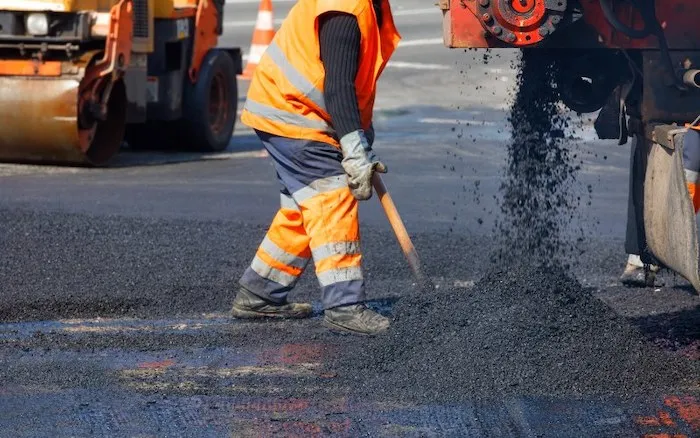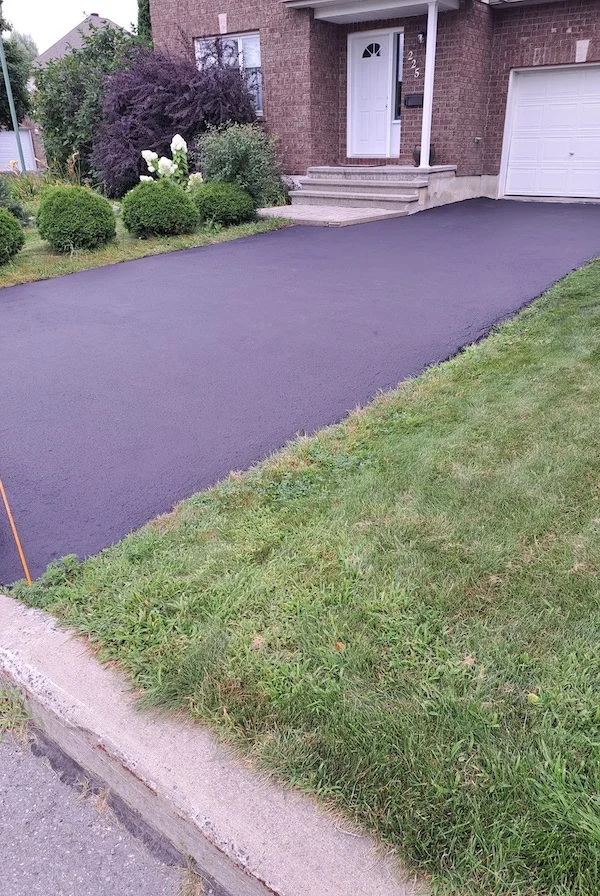How to Seal a Driveway
Sealing a driveway is a straightforward yet essential task to protect its surface and extend its lifespan. Whether your driveway is made of asphalt or concrete, a proper seal can shield it from weather damage, cracks, and wear from daily use. In this guide, we’ll walk you through how to seal a driveway step-by-step, from preparation to application, ensuring you get a durable, professional-quality finish. With the right tools and techniques, you can keep your driveway looking fresh and functional for years.

Why Seal Your Driveway?
A driveway takes a beating from rain, sun, snow, and vehicle traffic. Over time, these elements can cause fading, cracking, and potholes, especially on asphalt surfaces. Sealing creates a protective layer that prevents water from seeping in, reduces UV damage, and resists oil stains. For homeowners, it’s a cost-effective way to avoid expensive repairs or full repaving. Plus, a freshly sealed driveway enhances curb appeal, giving your property a polished look.
The process isn’t just for aesthetics—it’s about maintenance. A good seal can add years to your driveway’s life, making it a smart investment for any residential or commercial property.
Tools and Materials You’ll Need
Before you start sealing your driveway, gather these essentials:
- Driveway sealant (water-based or oil-based, depending on your surface)
- A squeegee or sprayer for application
- A pressure washer or stiff broom for cleaning
- Crack filler for repairs
- A bucket, stir stick, and gloves
- Tape or barriers to block off the area
Choose a sealant suited to your driveway type—asphalt sealants work best for asphalt, while concrete-specific products are ideal for concrete. Check the weather forecast too; you’ll need a dry day with temperatures between 50°F and 85°F for optimal results.
Step 1: Prepare the Driveway
Preparation is critical to seal a driveway effectively. Start by cleaning the surface thoroughly. Use a pressure washer to remove dirt, debris, and oil spots, or sweep with a stiff broom if you don’t have one. For stubborn stains, apply a degreaser and scrub. Next, fill any cracks or potholes with a crack filler, smoothing it out with a putty knife. Let the repairs dry for at least 24 hours—rushing this step can weaken the seal.
Once clean, ensure the driveway is completely dry. Water trapped under the sealant can cause bubbling or peeling, so wait until there’s no moisture left. This prep work sets the foundation for a smooth, lasting application.
Step 2: Apply the Sealant
Now it’s time to seal the driveway. Stir the sealant in its bucket to mix it evenly—don’t skip this, as settled ingredients can affect performance. Pour a small amount onto the driveway, starting at one end. Use a squeegee to spread it in a thin, even layer, working in sections. If you prefer, a sprayer can speed things up, but keep the coat consistent to avoid pooling.
Work your way across the driveway, overlapping each section slightly to ensure full coverage. Don’t apply too thick a layer—thin coats dry faster and adhere better. For larger driveways, consider doing it in stages to maintain control over the process.
Tips for a Professional Finish
For the best results when sealing your driveway, keep these pointers in mind:
- Avoid sealing in direct sunlight—early morning or late afternoon is ideal.
- Check the sealant’s drying time (usually 4–24 hours) and plan accordingly.
- Keep pets, kids, and cars off the driveway until it’s fully dry.
- Use a second coat if the manufacturer recommends it, but wait until the first is dry.
Step 3: Let It Dry and Cure
After you seal the driveway, let it dry for at least 24 hours before walking or driving on it. Drying times vary—water-based sealants might be ready in 4–8 hours, while oil-based ones can take up to 48 hours. Full curing, where the sealant hardens completely, could take a few days, so avoid heavy use until then. Check the weather again; rain during drying can ruin your efforts.
Once dry, your driveway will have a sleek, protective finish. This layer not only looks good but also guards against future damage, making maintenance easier down the line.
How Often Should You Seal?
To keep your driveway in top shape, seal it every 2–3 years. New asphalt driveways should wait 6–12 months before the first seal to let the surface cure. Older driveways with more wear might need sealing more often, especially if cracks or fading appear. Regular sealing prevents bigger issues, saving you from costly paving projects later.
For commercial properties with heavy traffic, annual sealing might be necessary. Adjust based on your driveway’s condition and usage—proactive care is the key.
Conclusion
Learning how to seal a driveway is a valuable skill for any homeowner or property manager. With the right preparation, tools, and application, you can protect your driveway from the elements and keep it looking its best. This simple process extends the life of your asphalt or concrete surface, offering both practical and visual benefits. Grab your sealant and get started—your driveway will thank you!
Consider Pavage Laval and Gatineau
If you're looking for the best paving service provider in Laval, Montreal, or throughout Quebec, Pavage Laval Asphalte Laval is your ideal partner. Our team of experts is ready to meet all your paving needs, offering superior and reliable services. Whether you're in Laval, the Montreal area, or elsewhere in Quebec, we're available to assist with each of your paving projects.
Don't wait any longer to contact us today. You can call us at +1 (438) 476 6508, email us at pavage-asphalte-laval-montreal@outlook.com, or visit our website at pavage-asphalte-laval-montreal.ca to learn more.
For those in need of paving and asphalt services near Gatineau, Quebec, we invite you to contact Pavage Gatineau Asphalte Gatineau Earnanswers. Our qualified team is available to answer all your questions and offer professional solutions. For more details or to request a quote, visit our website at pavagegatineau.com.
Additional Reading
A complete guide to sealing your driveway for long-lasting protection +1 (438) 476 6508
How to Seal a Driveway

We offer paving services in Laval, Quebec, specializing in asphalt for residential and commercial projects. info@asphaltesolution.com


Contactez-nous
Pavaging Laval Asphalt Laval Earnanswers
If you're looking for quality paving near you, our team of Laval paving experts guarantees long-lasting results. We also serve the Montreal region and surrounding areas. Contact us for a quick quote on your asphalt needs in Laval and nearby locations.

